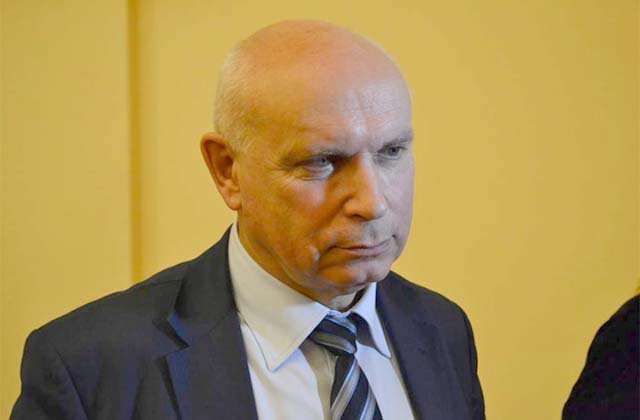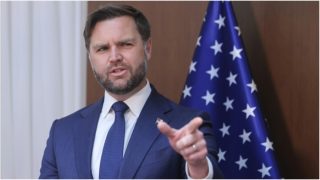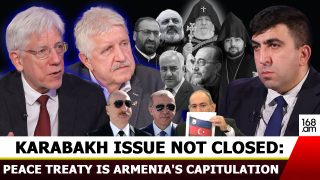MGIMO Vice-Rector: “It’s disinformation”

168 Hours sat down for an interview with Vice-Rector of MGIMO University (Moscow State Institute of International Relations) for Research, Doctor of Historical Sciences, historian and political scientist Evgeny Kozhokin.
168 Hours: Mr. Kozhokin, recently, Ambassador Extraordinary and Plenipotentiary, Special Representative of the President of Armenia on Special Missions 1992-1995 David Shahnazaryan delivered a speech entitled “Armenia’s Foreign Policy and the Nagorno-Karabakh Issue” at MGIMO and answered questions from the attendees during a discussion following the speech. How would you assess Mr. Shahnazaryan’s speech and the discussion?
Evgeny Kozhokin: David Shahnazaryan gave his speech during an expert seminar. The MGIMO hosts such seminars on a regular basis since it serves not only as a university, but also as a platform for analyses. We have several centers that deal with various issues, including the issues of CIS countries. This expert seminar was interesting, especially since Armenia unquestionably has the closest ties with Russia out of all the other countries. Therefore, the Russian community of experts is interested in everything related to and going on in Armenia.
The seminar was devoted to regional issues, Armenia’s foreign policy and, obviously, the settlement of the Nagorno-Karabakh conflict.
As a matter of fact, at the outset of the seminar, David Shahnazaryan said he has a principle, that is, he never discusses his country’s domestic policy in foreign countries, and he follows that principle. Consequently, he asked all the participants of the seminar to respect that principle and said he was ready to discuss the policy in the region and global events, except for topics related to the domestic policy of Armenia.
Therefore, of course, even though we are interested in everything that is going on in Armenia and the dynamics of the events, we respect that principle. Moreover, we believe it would be right for Russian experts and analysts to follow this principle as well.
168 Hours: Telegram’s “Baghramyan 26” channel disseminated information that the invitation was sent to David Shahnazaryan with the support of the Office of the second President of Armenia, but Shahnazaryan sharply refuted the information. What is your opinion?
Evgeny Kozhokin: The Office of the second President of Armenia had nothing to do with that invitation. The MGIMO invites different experts quite often. I met David Shahnazaryan almost 30 years ago when I was the head of an observation mission in Nagorno-Karabakh in 1991. I personally know many politicians of Armenia, especially those of the older generation. I don’t always share David Shahnazaryan’s views, but I have always considered him a smart person who has his personal views.
168 Hours: According to that same information, Shahnazaryan called on going against the incumbent authorities of Armenia and interfere in the domestic affairs of the country in an attempt to show the attendees of the seminar that Armenia will be making a choice favoring the West and will be demanding that Russia pull its troops out of Gyumri. Does this information correspond to reality? Has there been such a discussion?
Evgeny Kozhokin: There simply has not been such a discussion. I don’t know where this information came from because those issues have neither been raised nor discussed, and the expert seminar was not the platform for discussion on such issues.
168 Hours: So, was it disinformation?
Evgeny Kozhokin: It was disinformation. I don’t know who made it up. I read some information about the speech. The person who made the news up was not attending the seminar.
There is a specific minor detail in the information — the person who spread the information talked about a lecture that was delivered to students and professors, but this was an expert seminar, and there were no students participating in the seminar.
The MGIMO is an institution of the Ministry of Foreign Affairs of the Russian Federation, and interference in the domestic affairs of a particular country does not comply with the principles of the Ministry of Foreign Affairs of the Russian Federation and of the MGIMO, which serves as an institution of the Ministry of Foreign Affairs.

























